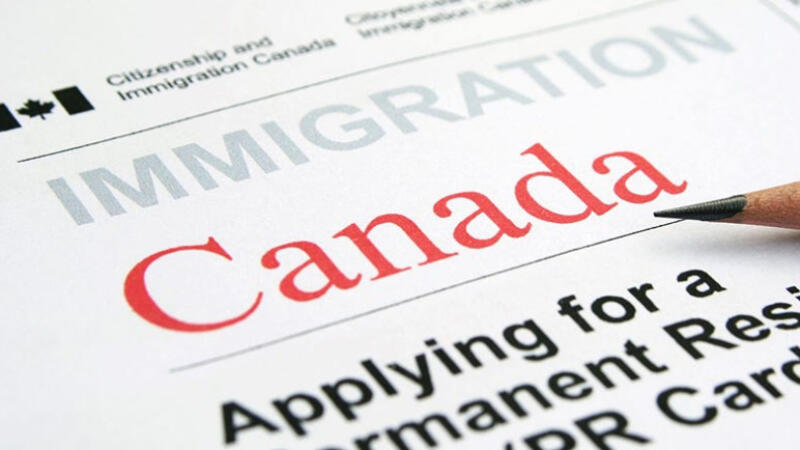Being a new Canadian citizen, you are going on an intriguing journey. An essential factor of relocating to a new nation, such as Canada, is making plans for your retirement. To most individuals, it might look a long way off, but it is vital to maintain a firm basis on time. Using the appropriate understanding and notified plans, you can acquire a relaxing retirement and have peace of mind concerning your financial fate.
In this article, we will investigate the importance of retirement schemes and tackle the prospects of Registered Retirement Savings Plans (RRSPs).
Table of Contents
What is Retirement Planning?
Retirement planning is a plan that assists you in attaining monetary security and keeping the lifestyle you want after you quit working. It involves arranging specific financial objectives, evaluating your present economic condition, and developing a roadmap to get to those objectives.
Four Things to Evaluate When Planning for Retirement
- Source of Earning: By becoming a new Canadian citizen, you can gain from various sources of earnings when you retire. If you have been employed in Canada and donated to the Canada Pension Plan (CPP) or the Quebec Pension Plan (QPP) for those living in Quebec, you may be eligible for monthly pension payments. Also, you can qualify for the Old Age Security (OAS), a monthly fee, and you may acquire it if you are 65 or above in Canada. Besides these administrative gains, you may be entitled to other earning streams, such as a workplace pension scheme, rental earnings, and other investment earnings.
- Living Cost: You must be realistic when estimating your future living costs. You can begin by assuming you can require about 70% of your working earnings by the time you have retired. Remember to report for the leisure exercises you intend to do when you retire, such as going on trips and touring the world, which may be an aspect of your retirement ambition.
- Property Selling Conclusion: If you have properties in Canada, you may desire to contemplate when and if you want to sell them as an aspect of your retirement scheme. Most individuals decide to downsize or market their property to free up funds for retirement, whereas others may choose to keep their present residence. Before you make any plans, it is recommended that you meet a financial counselor.
- Conversion of RRSP: If you decide to invest in a Registered Retirement Savings Plan, it will naturally change to a Registered Retirement Income Fund (RRIF) in the year you become 71. Registered Retirement Savings Plan provides surcharge benefits and assists in developing your retirement finances.
Tackling the Prospects of RRSPs
Registered Retirement Savings Plans are tax-benefited savings accounts formed to assist Canadian citizens in retirement savings. Donations provided to RRSP are surcharge-deductible, which implies you can lower your taxable earnings by donating to your Registered Retirement Savings Plan. This not only assists you in keeping funds for retirement but also reduces your surplus bills in the short term.
Should you find this piece engaging, we kindly invite you to explore the wealth of content in our other articles:
Five Motives to Consider Making an RRSP Donation
- Tax Advantages: Donating to your Registered Retirement Savings Plan can lower your taxable earnings, prospectively leading to reducing your tax charges.
- Retirement Savings: Registered Retirement Savings Plan is mainly formed to help you keep money for retirement, providing them an intelligent option for your long-term monetary objectives.
- Compound Development: The funds you donate to your Registered Retirement Savings Plan may increase over time via investments.
- Homeownership: You can make use of your Registered Retirement Savings Plan savings if you buy your first house via the Home Buyers Plan (HBP).
- Schooling: Using the Lifelong Learning Plan (LLP), you can use your RRSP savings to finance your school or apprenticeship.
Maximizing RRSP Prospects via Investment
When you have a Registered Retirement Savings Plan, you can invest the money in many properties to develop your savings as time goes on. Below are some to consider:
- Guaranteed Investment Certificates (GICs): They offer an assured rate of return for a particular duration while securing your guidelines. They are reduced threats but naturally provide reduced returns when approximated to other investments.
- Mutual Funds: These are specialized organized investment finances that collect funds from many investors to buy a diversified portfolio of bonds and other securities.
- Exchange Trade Funds (ETF): These are comparable to mutual finances; however, they are marketed on stock exchanges such as private stocks. Stocks are shares that indicate that the holder possesses equal ownership in the allocating corporation. Investing in private stocks may provide the prospective for increased revenues; however, it also shows up with an increased threat.
Retirement is a factual event for so many of us. Making plans for it and organizing your Registered Retirement Savings Plan may assist in obtaining a relaxed life. Ensure to start with a retirement scheme that regards your earning sources, living costs, and prospective property conclusion.






